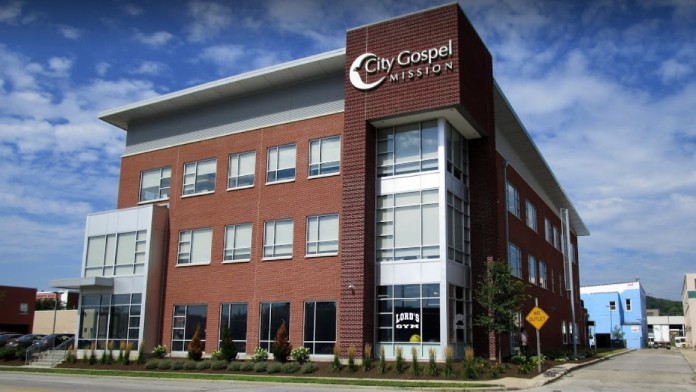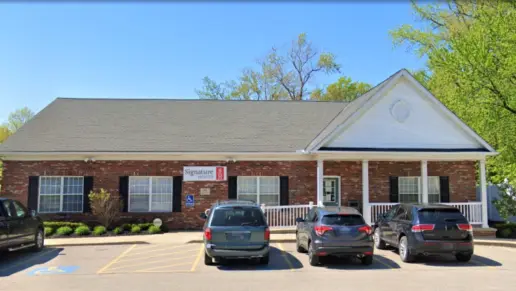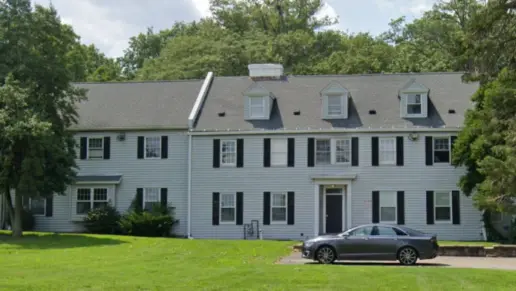About City Gospel Mission
City Gospel Mission is a religious based organization in Cincinnati, Ohio. They provide Christian-centered life transformation to the socially disadvantaged. These include the homeless, the incarcerated and those affected by behavioral conditions like substance use disorders. Their residential addiction recovery programs equip you with the tools and support needed to rebuild your life with a sense of purpose.
They offer separate faith-based residential programs for men and women. The men’s program is called Exodus and the women’s program is Courage to Change. These programs serve not only those affected by substance abuse but also individuals facing repeated incarceration and homelessness. They also support those dealing with stabilized mental health conditions.
Both programs adopt essentially the same recovery approach. The program lasts 12 to 24 months depending on your goals and personalized treatment plans. Recovery starts with 45 to 60 days of orientation. This involves familiarizing yourself with the structure, setting goals and building a foundation for recovery. Typically their case manager and life coach will assist you with setting goals.
After orientation, you’re encouraged to make 60 to 120-day commitments toward completing your individualized plan. Their recovery approach promotes accountability and responsibility in a supportive environment. Emphasis is on spiritual development, inner healing and health and wellness. Services also include life skill development, job readiness training and personalized case management. This fosters lasting recovery.
Upon graduation, you’re relocated to their transitional apartment for aftercare support. This facility offers independent living with supportive services. This includes counseling, mentoring and group meetings. This additional support helps you maintain sobriety and learn independent living as you prepare to reintegrate into the community.
Rehab Score
Gallery

Location
Other Forms of Payment
Self-pay involves paying for treatment out of your own pocket. You can use savings or credit, get a personal loan, or receive help from family and friends to fund your treatment. If you don't have insurance or your insurance plan doesn't cover a specific program, self-pay can help ensure you still get the care you need.
Medicaid is a state based program that helps lower-income individuals and families pay for healthcare. Medicaid covers addiction treatment so those enrolled can use their coverage to pay for rehab. When a program accepts Medicaid the client often pays very little or nothing out of their own pocket.
Financial aid can take many forms. Centers may have grants or scholarships available to clients who meet eligibility requirements. Programs that receive SAMHSA grants may have financial aid available for those who need treatment as well. Grants and scholarships can help you pai for treatment without having to repay.
Medicare is a federal program that provides health insurance for those 65 and older. It also serves people under 65 with chronic and disabling health challenges. To use Medicare for addiction treatment you need to find a program that accepts Medicare and is in network with your plan. Out of pocket costs and preauthorization requirements vary, so always check with your provider.
Addiction Treatments
Levels of Care
Treatments
The goal of treatment for alcoholism is abstinence. Those with poor social support, poor motivation, or psychiatric disorders tend to relapse within a few years of treatment. For these people, success is measured by longer periods of abstinence, reduced use of alcohol, better health, and improved social functioning. Recovery and Maintenance are usually based on 12 step programs and AA meetings.
Drug rehab in Ohio provides comprehensive treatment to address the physical and psychological needs of those struggling with substance use disorders. This may involve inpatient and/or outpatient care.
A combined mental health and substance abuse rehab has the staff and resources available to handle individuals with both mental health and substance abuse issues. It can be challenging to determine where a specific symptom stems from (a mental health issue or an issue related to substance abuse), so mental health and substance abuse professionals are helpful in detangling symptoms and keeping treatment on track.
Opioid rehabs specialize in supporting those recovering from opioid addiction. They treat those suffering from addiction to illegal opioids like heroin, as well as prescription drugs like oxycodone. These centers typically combine both physical as well as mental and emotional support to help stop addiction. Physical support often includes medical detox and subsequent medical support (including medication), and mental support includes in-depth therapy to address the underlying causes of addiction.
Programs


Clinical Services
Group therapy is any therapeutic work that happens in a group (not one-on-one). There are a number of different group therapy modalities, including support groups, experiential therapy, psycho-education, and more. Group therapy involves treatment as well as processing interaction between group members.
In individual therapy, a patient meets one-on-one with a trained psychologist or counselor. Therapy is a pivotal part of effective substance abuse treatment, as it often covers root causes of addiction, including challenges faced by the patient in their social, family, and work/school life.
Life skills trainings involve all the skills a person must have in order to function successfully in the world. These include time management, career guidance, money management, and effective communication. Truly successful addiction recovery is based on the ability to not only live substance-free, but to thrive. Life skills teaches the practical necessities of functioning in society, which sets clients up for success in life, and therefore sobriety.
Contact Information
1805 Dalton Avenue
Cincinnati, OH 45214


